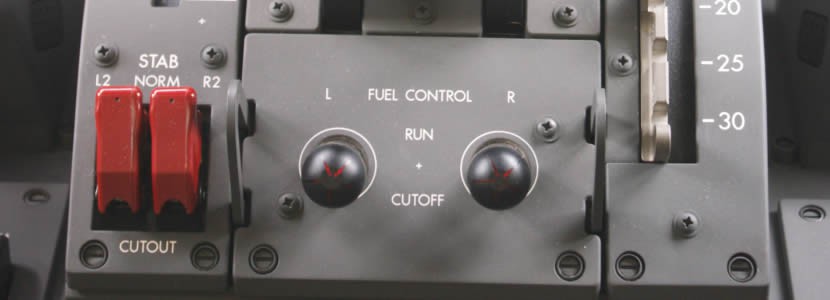
Fuel consumption is one of the main components of the Direct Operating Costs (DOC) of an airline. The cost of fuel generally accounts for 25% to 40% of the total operating costs. Managing fuel consumption is therefore of utmost importance because it has a direct effect on profits.
Fuel management can only be efficient if all aspects of the airline operation are taken into account. Therefore it is necessary to look at flight operations, ground operations, as well as the engineering & maintenance activities to identify and implement fuel efficiency initiatives.
We can help with providing you insight in your current fuel efficiency. We have a holistic airline approach acknowledging cohesion of fuel influences across the flight operations, ground operations and engineering & maintenance departments. We support the development and implementation of a tailor made fuel efficiency program, with the aim to reduce overall cost.
Due to our extensive experience as pilots, operational and fuel efficiency managers in aviation we understand very well that all fuel related issues are directly related to the safe operations of an airline.
During every step of the programme safety and compliance to regulations have the utmost priority and are always considered.
We have developed a structured 5 step modular airline fuel efficiency program. The advantage is that you have the flexibility to conduct each step as a separate module and decide to continue to the next step only if expected efficiency justifies the benefits.
- Quick scan. This is a benchmark of your efficiency against best practices in the business.
- Gap analysis. This analysis compares over 100 fuel efficiency initiatives within your planning & dispatch organization, flight operations, ground operations, engineering & maintenance activities and more.
- Efficiency case studies. The most promising initiatives out of the gap analysis may warrant a case study with the objective to justify the investment, risks, time, training, effort etc. needed for implementation.
- Implementation support. The promising initiatives that pass the case study need to be implemented in an effective way. This is critical for the delivery of the intended benefits. The support covers complete project management for implementation like the development of the process, procedures, training, communication, performance indicators and more.
- Organizational adaptation support. Adjustments may be needed to your organization to complete the PCDA-cycle for the control and continuous improvement of processes related to fuel management. This support covers aspects like fuel policies, adherence to rules and regulations, documentation, monitoring of compliance/adherence to fuel related operating procedures, tracking benefits of implemented initiatives, automated (IT) fuel dashboards, management reviews and more.
For more information on our program on Airline Fuel Efficiency Management please feel free to contact us directly. A leaflet containing additional information can be downloaded here: Leaflet | Airline Fuel Efficiency Management.
